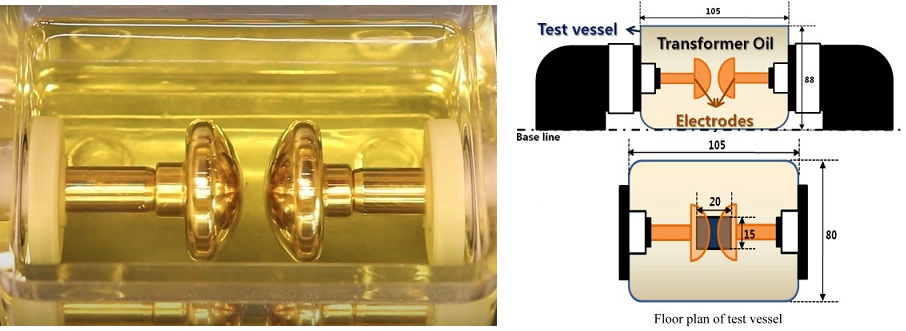The Function of Dielectric Transformer Oil in Reliable Power Circulation Solution
Dielectric transformer oil is a necessary component in the world of power distribution systems, giving important functions that prolong beyond simple insulation. Its capability to help with and protect against electrical discharges warmth dissipation makes certain that transformers operate successfully and maintain their long life.
Functions of Dielectric Transformer Oil

Furthermore, dielectric transformer oil plays a vital function in thermal administration. It properly dissipates warm produced during the procedure of transformers, helping with ideal performance and extending devices life - waste transformer oil. The oil distributes within the transformer, soaking up warmth and carrying it to cooling systems or radiators, therefore keeping a secure operational temperature level
Additionally, dielectric transformer oil contributes to the prevention of oxidation and corrosion of interior components. By giving a barrier versus wetness and air, it preserves the electric and mechanical residential or commercial properties of the products utilized in transformers, reducing the possibility of early failing.
Importance of Insulation
The honesty of electric systems heavily relies upon reliable insulation, which works as the initial line of protection against short circuits and electric discharges. Insulation products, such as those made use of in cable televisions and transformers, are important for preserving the operational dependability of power distribution systems. They avoid unintended existing circulation, safeguarding both equipment and workers from dangerous electrical failures.
The relevance of insulation expands beyond plain security; it also guarantees the longevity of electrical elements. Top notch insulation materials can endure environmental stressors, such as dampness, temperature variants, and mechanical influences, thus reducing the possibility of insulation failure. This resilience is crucial in maintaining the efficiency of power circulation facilities.

Heat Dissipation System
When considering the efficiency of power distribution systems, comprehending the heat dissipation mechanism is essential, as excessive heat can lead to tools failing and lowered operational lifespan. Dielectric transformer oil plays a vital function in this procedure by assisting in effective heat move away from crucial components within the transformer.
The main mechanism of warm dissipation in transformers involves convection, transmission, and radiation. The oil distributes within the transformer, either naturally or through compelled flow, enhancing convective warmth transfer.
In addition, the dielectric residential properties of the oil avoid electrical breakdown while supporting cooling. The high check my reference thermal conductivity of transformer oil enables quick heat exchange, guaranteeing that temperature increases are decreased (dielectric transformer oil). By preserving optimum operating temperature levels, dielectric oil not only enhances the dependability of power distribution systems however likewise adds to the general effectiveness of energy transmission. Comprehending these mechanisms is vital for the optimum layout and procedure of transformers within the power distribution network.
Effect On Transformer Longevity
Efficient warm dissipation straight affects transformer durability, as long term exposure to elevated temperatures can increase insulation destruction and material fatigue. Dielectric transformer oil plays a critical function in this procedure by efficiently moving warmth away from the core and windings, keeping ideal operating temperatures. The thermal conductivity and specific warm capability of transformer oil are necessary qualities that improve its capacity to dissipate and absorb warm created during transformer operation.
Furthermore, the oil's dielectric properties More Info are vital for preventing electric breakdown and making certain insulation honesty. A top quality dielectric oil reduces the danger of arcing and dielectric failing, which can bring about disastrous transformer failures and significantly shorten solution life. Normal monitoring of the oil's problem is important to identify pollutants and degradation items that may jeopardize its performance.
In addition, the chemical security of the dielectric oil is critical; oils that resist oxidation and thermal degradation add to prolonged insulation life and overall transformer dependability. By alleviating the results of warmth and electrical anxiety, dielectric transformer oil serves as an essential part in enhancing the long life and efficiency of power circulation transformers, hence ensuring an extra dependable this energy supply.

Environmental Factors To Consider
Environmental considerations surrounding dielectric transformer oil are significantly crucial in the context of sustainable power distribution systems. The usage of typical mineral oil offers difficulties due to its prospective ecological dangers, consisting of toxicity to water life, soil contamination, and problem in biodegradation.
Additionally, the disposal and recycling of dielectric oil are important elements of ecological stewardship. Proper administration practices have to be implemented to stop leaks and spills, which can have damaging results on regional ecosystems. Governing frameworks are advancing to implement stringent standards regarding the handling, storage, and disposal of transformer oils, guaranteeing that utilities prioritize ecological integrity.
Additionally, the life cycle evaluation of dielectric transformer oils is ending up being a crucial element of reviewing their general ecological impact. This assessment consists of oil manufacturing, use, and end-of-life disposal. By deciding and adopting sustainable techniques for environment-friendly alternatives, power circulation systems can significantly reduce their ecological impact while maintaining functional reliability.
Verdict
In verdict, dielectric transformer oil is necessary for the reliability and performance of power circulation systems. The oil's ability to lessen oxidation and deterioration enhances transformer long life, consequently decreasing maintenance costs.
Dielectric transformer oil is an essential element in the realm of power circulation systems, supplying important features that expand beyond plain insulation.Dielectric transformer oil offers several critical functions in power circulation systems, making certain both operational performance and security. Dielectric transformer oil plays an important duty in this procedure by efficiently transferring heat away from the core and windings, maintaining optimum operating temperatures. The thermal conductivity and specific warmth capacity of transformer oil are essential features that boost its capacity to take in and dissipate warmth created throughout transformer operation.
A top notch dielectric oil lowers the threat of arcing and dielectric failure, which can lead to tragic transformer failures and significantly reduce solution life. waste transformer oil.